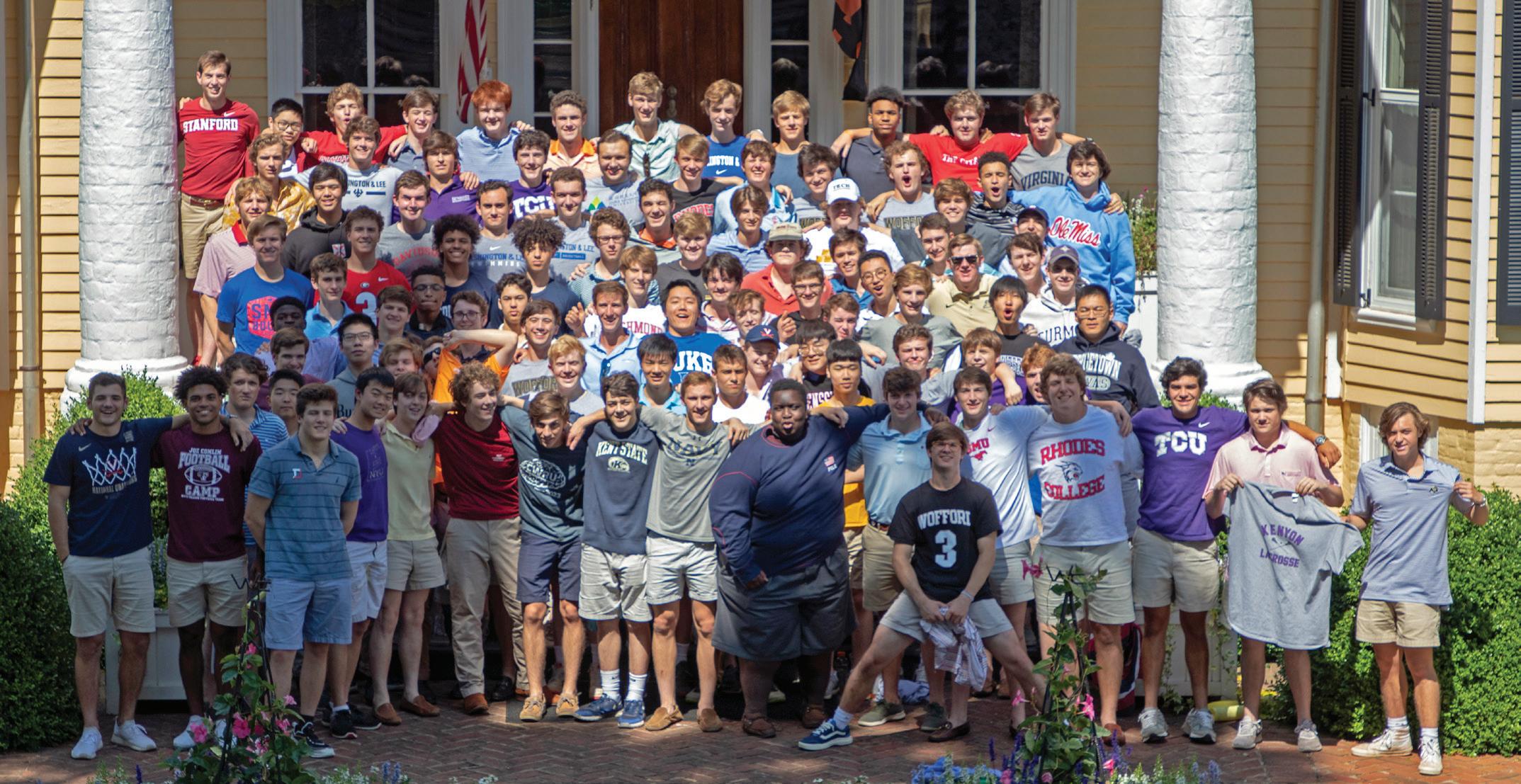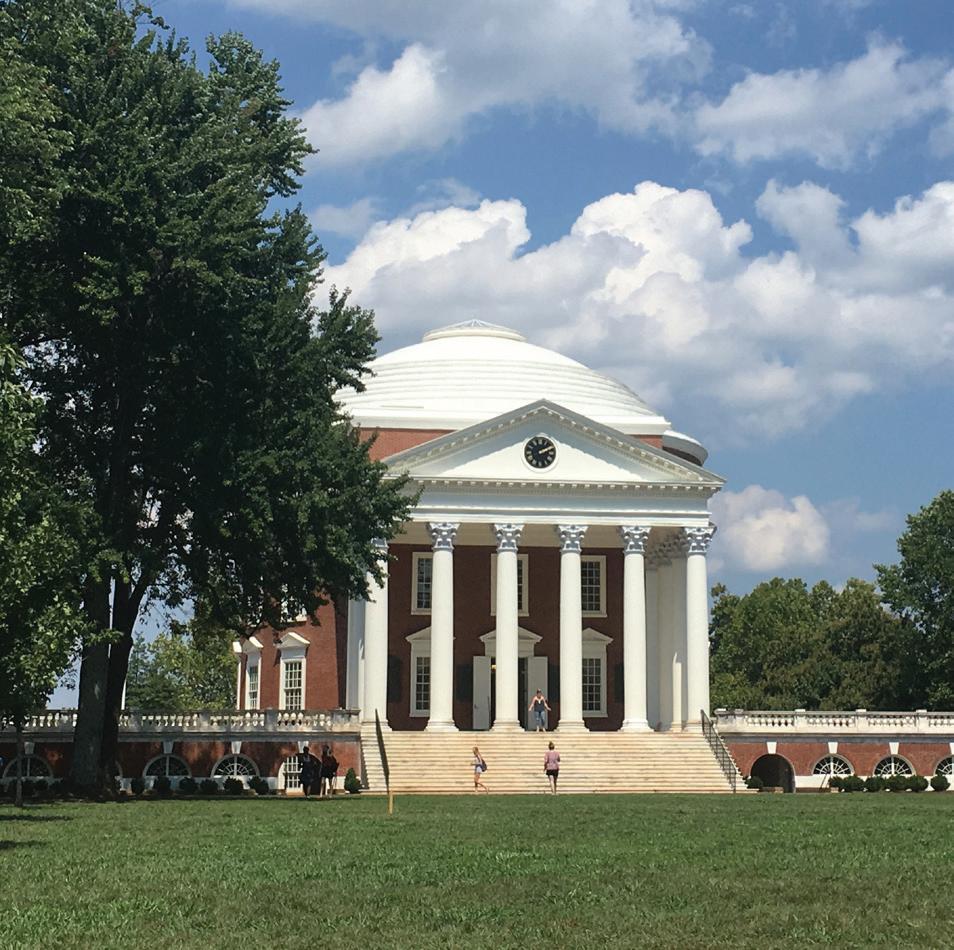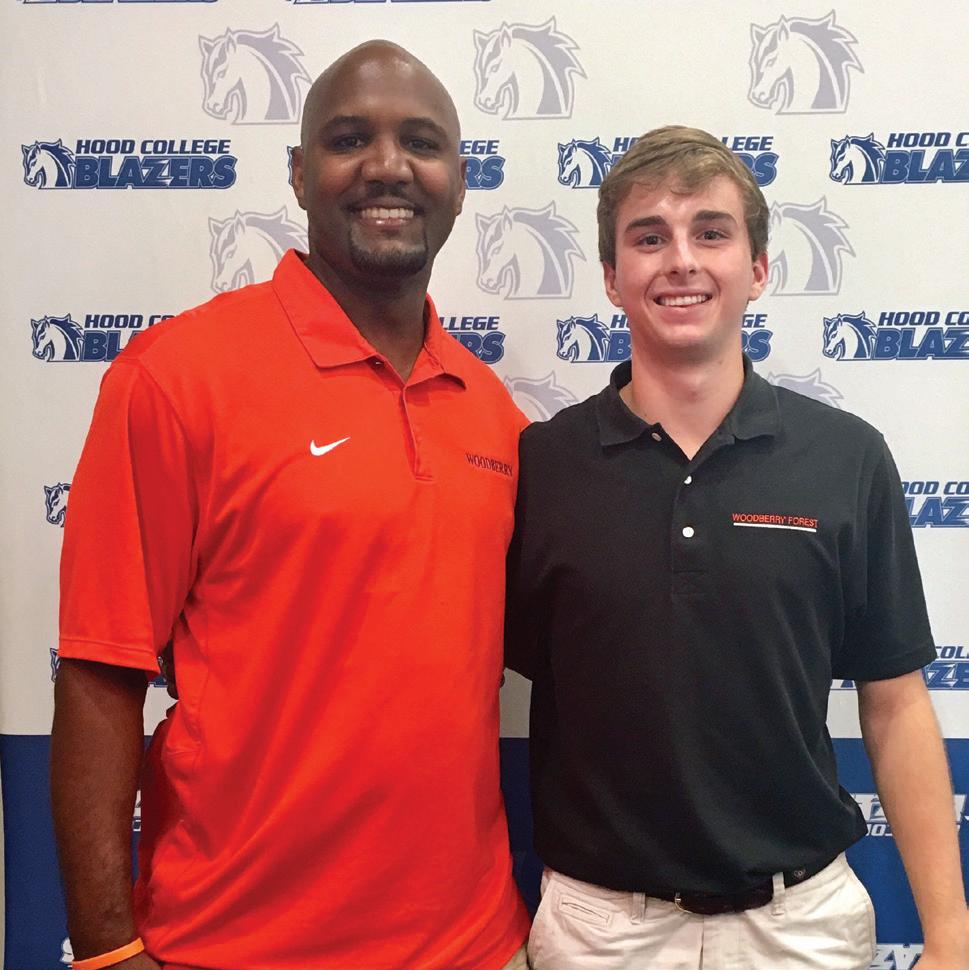
3 minute read
Conducting a Search
The college search process can begin as early as a student’s third-form year and continue until the regular decision application deadline during the winter of a boy’s sixth-form year. A search starts with research, primarily online, before continuing on to information sessions and campus visits. Counselors will work with boys during the search process to establish a large list of colleges — often of twenty or more schools — that a student will pare down before eventually applying to between five and ten schools.
WORKING WITH ADMISSION REPRESENTATIVES Each fall Woodberry hosts representatives from more than fifty colleges and universities for informational meetings with interested boys. These representatives often evaluate Woodberry boys’ admission applications in the late fall and winter. Students should take advantage of the opportunity to get to know these admission officers and use them as resources during the process.
RANKINGS vs. FIT College rankings can, at times, help students and families learn about the strengths or weaknesses of different schools. But rankings are limited, sometimes superficial, measurements of schools and should never dominate or dictate a search. Assessing fit — how a student fits with a particular college’s mission, how he might be made better by a college and in turn enrich that collegiate community — is far more important than rankings. The college counselors use their wealth of experience to help each boy find a college that is the right academic and social fit.
Conducting a Search
DEMONSTRATING INTEREST Many colleges take a student’s “demonstrated interest” into account when reviewing applications. A boy can first demonstrate interest by attending information sessions if a college visits Woodberry. Visiting campus for an official tour and information session is another critical indicator of interest, as is interviewing with an admission counselor when that option is available.
If a student does attend an interview (and Woodberry students should, since they generally come off very well in interviews), here are a few helpful tips:
An interview is a conversation between the student and the admission representative. Boys should be ready to explain why they’re interested in the school. They should do their best to relax and talk candidly about their interests and accomplishments. Showing personality and a sense of humor in an interview is encouraged!
Questions to Ask: Don’t ask questions with answers easily available online. Asking those questions shows a lack of research and preparation. Here are a few suggestions: • What would graduates say was the most valuable thing about their four years here? What are the big issues on campus this year? How will the institution be different in five years?

Conducting a Search
MAKING THE MOST OF A COLLEGE VISIT
There’s really no wrong time to visit campuses, though most students begin making visits in their fourth-form year and finish them early in their sixth-form year. Students shouldn’t take for granted schools they’re already familiar with. While attending sporting events or visiting friends and family on a college campus might be fun, these aren’t substitutes for the visits curated by college admission offices.

Plan ahead: Colleges usually host a few information sessions per day. Some schools require advance registration; others accept drop-in guests.
Take notes and pictures: Visits can blend together. Photos and notes can capture key highlights.
To interview or not to interview: Not all colleges offer evaluative interviews; rising seniors should find out whether interview opportunities are available. Appointments are generally required. Classroom attire is appropriate.
Tap the Tiger network: The college counseling office can check if there are any Woodberry alumni attending schools where a student plans to visit and put boys in touch with current college students.

College days: Woodberry students are granted three days during each of their fifth- and sixth-form years when they may miss class to visit colleges. Boys may take college days with the permission of their teachers, college counselor, and the dean of students. Visits are most productive when boys visit on a class day. The exception to this rule is when an admission office has scheduled an open house or special program. Any student missing Woodberry classes for a college visit is expected to take an admission office-sponsored tour, attend an information session, and visit a class. If a boy wishes to spend the night off campus on a weekend, he may use a long or short weekend in conjunction with a college day.







